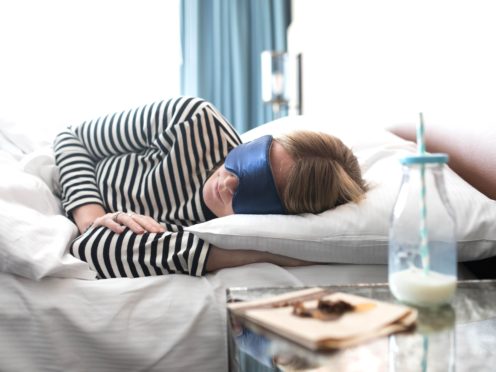A museum is on the hunt for an unusual collection – Covid-19 dreams.
Anxiety, stress and worry from the pandemic is known to have affected sleep and “dreaming minds” as well as day-to-day life.
The Museum of London now wants to keep a record of dreams from the pandemic for posterity.
It hopes collecting oral testimonies of dreams will help future generations understand the full impact of the crisis.
The link between dreams and mental health and ways of coping with external stresses, particularly in times of crisis, will also be explored.

Its digital curator Foteini Aravani said the dreams will help “document a key shared experience from the pandemic”.
She said the dreams will be collected as first-person oral histories, “to provide a more emotional and personal narrative of this time for future generations”.
She told the PA news agency they will provide an “intimate encounter of how the pandemic has affected us”.
She added: “One of the things that we all do, sleeping, is being disturbed for different reasons over lockdown.
“What we would like to capture with these interviews is how Covid has probably affected us consciously, but subconsciously as well.
“The best way to record that is through dreams, which are the guardians of our subconscious”, and also “help us cope with our waking life as well”.
She added: “It started with me when I realised during lockdown I’d been having more dreams or more vivid dreams.”
After reading a couple of studies, she realised it “was not just my personal experience, but a global phenomenon”.
She said of the collection: “It’s just another way to record and document how the pandemic has affected us.”
The Museum of Dreams, at Western University in Canada, is also behind the project.
Its curator Sharon Sliwinski said it is hoped the collection will help further understand “the significance of dream-life as a mechanism for working through social conflict and how the pandemic has affected the human condition”.
Sigmund Freud understood dreams as a “symbolic process that helps us work through the struggles we face in our waking lives”, she said.
He described dreams as the “guardians of sleep” where “dreams are seen as night watchmen helping to preserve the integrity of our mind, guarding over our capacity to articulate experiences in our own terms”, she added.
The research is said to be the first time that dreams as raw encounters and personal testimonies will be collected by a museum.

It cites research by King’s College London showing the anxiety, stress and worry sparked by the global crisis is affecting sleep and dreams.
The dreams will form part of a project to collect first-hand experiences of how coronavirus is changing society.
Curators have been collecting objects for future generations to be able to look back and understand this “extraordinary time”.
People are being invited to speak about their Covid, dream-life experiences with a member of the Museum of Dreams network – scholars from the psychosocial community.
The conversations, conducted virtually over Zoom, will then be considered for acquisition by the Museum of London for their permanent London Collection.
To volunteer to participate in the study, or find out more details, contact info@museumofdreams.org by January 15, 2021.
